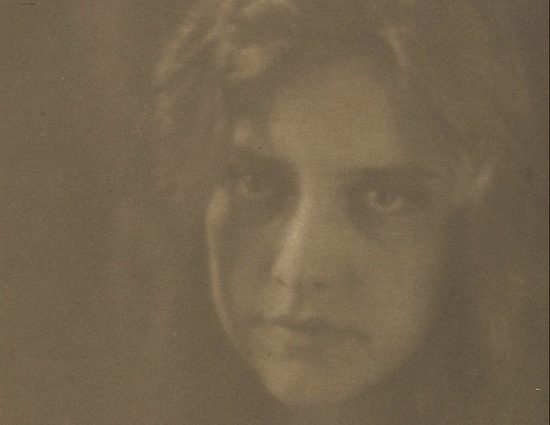Betty Brewer was my great-aunt, though only four days older than my mother. I never knew Betty. She died before I was born, killed by a jealous wife who caught her husband and Betty in a lover’s tryst at a boarding house rented by the day. Family spoke of Betty only in whispers, making me curious about this “black sheep” and what drove her to such extremes of love. “Betty Brewer” is my attempt to answer that heart’s inquiry.
Betty Brewer
(A twenty-one-year-old Dayton woman was stabbed to death Saturday night in what authorities describe as a love triangle. Betty Brewer, mother of three, was pronounced dead on arrival at Rhea County Hospital where witnesses said she died of a wound of the heart. Dayton Herald; Dayton, Tennessee, on December 7, 1946)
Cheap paper cheapens memory
as when fingerprints smudge
on a weapon discarded long
ago, leaving no trace of the
calm fury found on the face
of a woman whose blade at
your imperiled throat left
you gasping in surprise at
the length of your own shadow
cast on a jittery floor. How
unlike yourself you must have
seemed, you who so defiantly
and lawlessly loved, hugging
the knife to your chest, tilting
toward darkness accompanied
by a final night accompanied by
a final day dismissed of salt. Not
one of all who saw you could
deny the rumor printed as fact
that you had died almost instantly
from a wound of the heart or
that the greater offense was not
so much cleaving to a man not your
own as leaving behind to mourn
your passing and posing three children
who stood in silence where the
wind grew.
Of the particulars of your twenty-one
summers I know little or even now
of why you sing to me across the
solitary region where rain and
the wearing of stone assure your
secret. From borrowed memory
and shameful whispers I came to
know what only the passage
from one day to another could reveal:
That you were my grandmother’s
sister, though four days younger
than my own mother and seven
years dead before my birth. By
many you were scolded not to follow
your heart down the alley to a
boarding house where compulsory
windows remained strictly faithful
to your ascent. It would come
to this, they clucked, though to what
you have come I would not presume
to know, you whose vinegar once
flowed beneath a kindling chair
next to a scorched lampshade. They
say even the preacher made a
final example of you, but from this
distance I am inclined to wonder:
Betty, was his a religion you could
live without or, barring that, was
yours one you could die with? Did
you discover, by losing your grasp,
a hand held open to the secret for
which most of life is merely an
outward manifestation? If love is
not worth dying for, then is what
is left worth living for – bitter
circumstances, interminable clothes,
stockings hung to dry?
Everything reaches the tips of fingers
like flowers or orphaned children
stretching for a tin of cookies on
the shelf of a clapboard kitchen.
Was it worth the cost of violet
mouths pursing around the
sound of your name, urging a thousand
kisses that could not be given?
I cannot say, and I will leave
you and them to find what
ever peace will open its arms
to encircle you with less than
stifled conversations and confused
wind. But like a half-hearted saint you
died in shame in a room where
imperfect love spoke soft petitions,
drenched you in a woman’s earthly
sweat, and swore allegiance to your
inconsolable blood. Not to all you failed
to do then but to what you failed not
to do, I sing a hymn of praise, grateful
at last, for one who sleeps with hands
upon a wounded heart and whose
faithful dream of love awakens in me
a stirring at the very least.
—— From Edward Francisco’s Death, Child, & Love
**Featured Image Source: Wikimedia Commons/The J. Paul Getty Museum
Artist: Alvin Langdon Coburn/ Title: Study – Miss R

So much of this burns — the story, the questions, the way the story and questions are expressed. Marvelous.